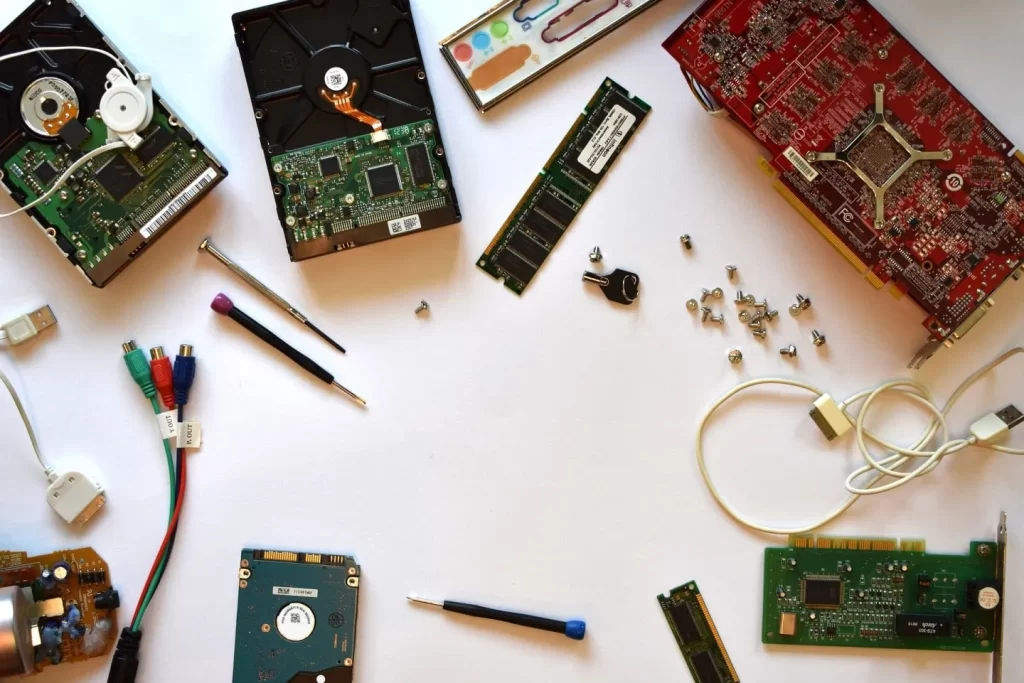Can Virus Damage Hardware?

There have been claims that viruses can do physical harm to hardware. Stuxnet was an example of this kind of attack; it used firmware tampering with equipment controlling uranium centrifuges as its target. But while Stuxnet targeted centrifuges specifically, more general attacks like one which overwhelms read/write heads can rapidly wear down mechanical hard drives faster.
Modern malware often does not directly target hardware; rather, its main objective is corrupting software drivers that communicate with it.
Overheating
Electronics generally shut down when they overheat; their internal components cannot operate at higher temperatures and could become permanently damaged as the internal temperature reaches too high a threshold. Luckily, all major laptop and desktop computers include built-in systems which detect overheating devices before their temperature reaches damaging levels, automatically shutting them down before any hardware damage occurs.
Viruses can quickly drain computer resources and lead to overheating in no time at all. If your PC seems unusually hot for no discernible reason, run a full malware scan with reliable anti-virus software as soon as possible.
An overheated CPU may suffer poor system performance, which might manifest as slower load speeds or being unable to complete certain tasks. This degradation in performance could become visible as soon as it starts happening, reducing load speed or rendering other tasks impossible to accomplish.
Damage to Hard Drives
Unscrupulous computer repair technicians often engage in schemes whereby they tell naive customers their hard drive has been “destroyed” by viruses, and require them to purchase new hardware at a marked-up cost – with profits coming directly from this scheme and giving the impression that all future problems stem from viruses.
Malware can create many issues for a hard drive, including frequent crashes and slow performance, but it cannot directly create bad sectors on it; these tend to form due to physical damage, ageing or manufacturing flaws.
As with other viruses, boot-sector viruses can be difficult for nonexperts to remove from a hard drive, though professional repairs are generally the way to go. Most modern drives include an EEPROM that can be reflashed with original firmware in case of infestation; this requires access to manufacturer secret codes however.
Damage to Memory
There have been viruses in the past that could do physical damage to hardware, like Chernobyl virus that destroyed a BIOS chip. But that was just an unfortunate glitch as modern computers feature an EEPROM feature enabling BIOS and firmware reflashing without replacing a physical chip.
Viruses generally don’t compromise device hardware, instead only damaging software and data. However, intensive gaming sessions can put too much strain on PC or laptop hardware to be protected against, potentially leading to overheating and permanent hardware damage over time.
Some viruses can do physical damage to hardware depending on their programming and the goal of their creator, such as Stuxnet which was designed to disable Iranian centrifuges.
Damage to Motherboard
There’s always the possibility that viruses could cause irreparable harm to your motherboard, for example causing your video card to overheat and burn out, but this is unlikely; overheating could also be caused by other sources like dust/lint in your computer, intense gaming sessions or improper installation of components.
Most viruses don’t directly target hardware devices, instead targeting software drivers that enable communication between these devices and computers. While this may prevent devices from functioning as expected, it does not cause physical damage to them.
If someone wanted to create a virus that would damage hardware, they’d need to hack into networks and flash firmware onto equipment, something which is rarely done and usually only carried out by nation states for purposes of spying or not wanton destruction.








